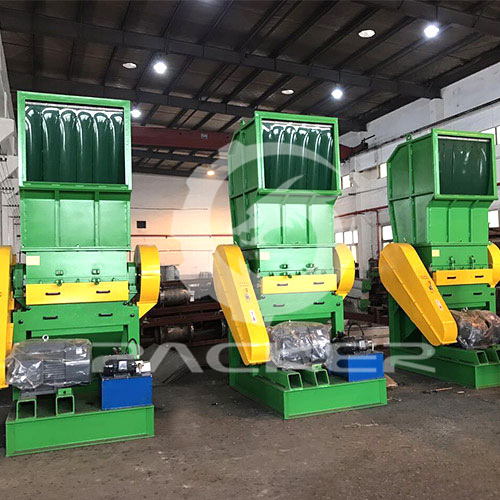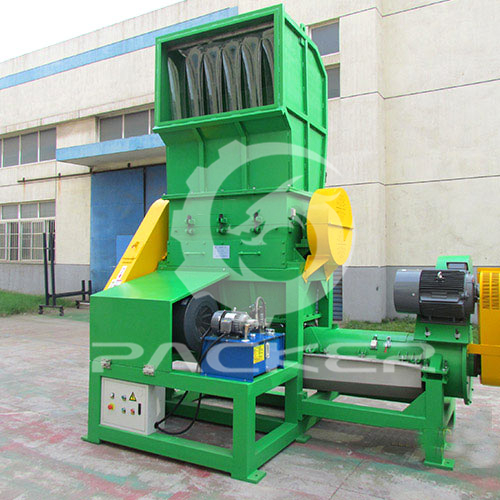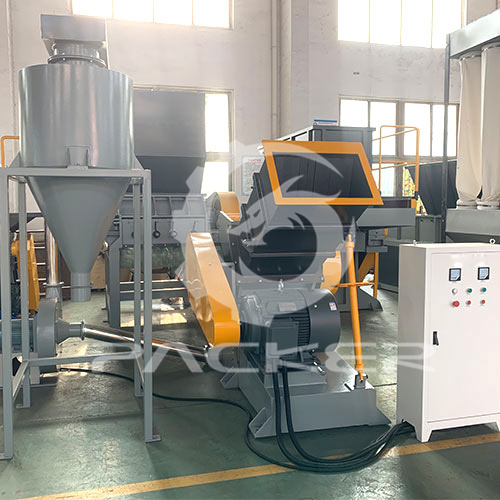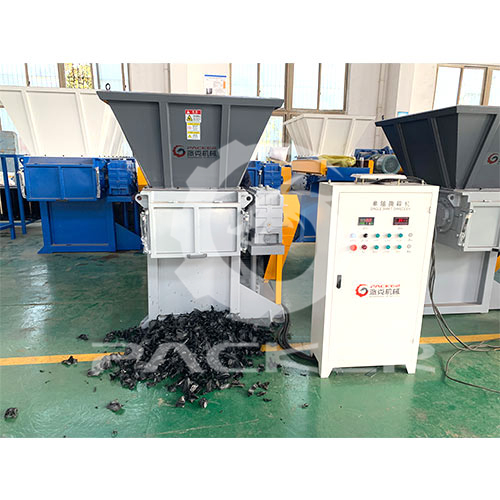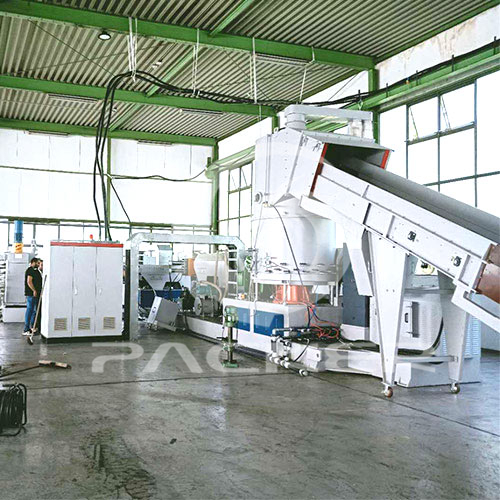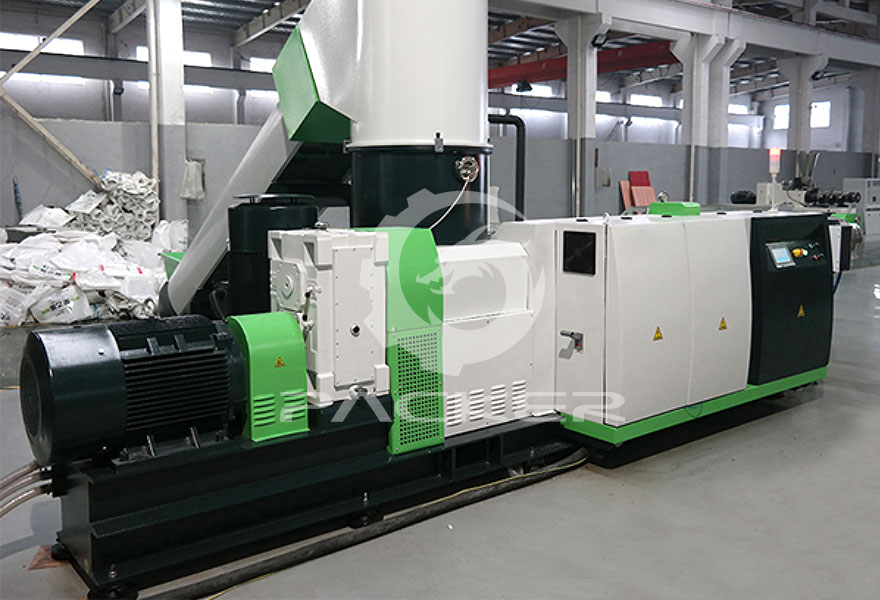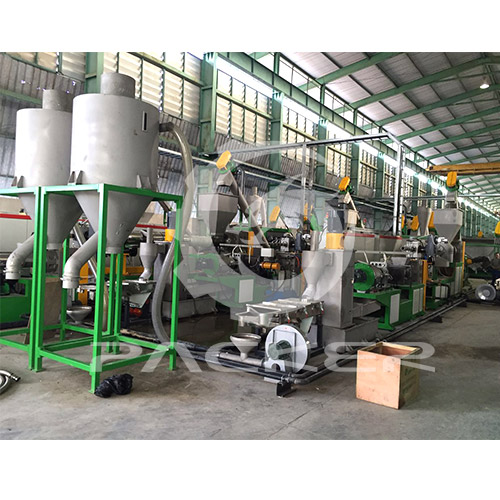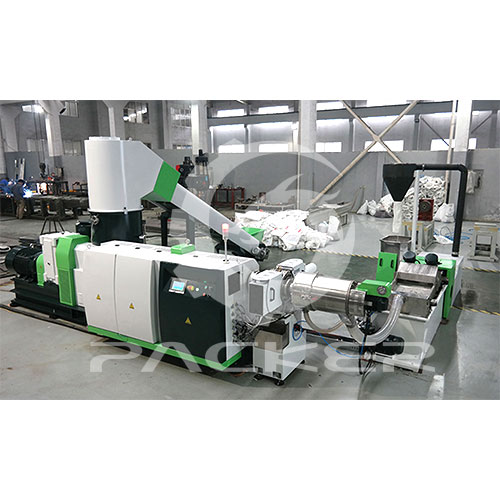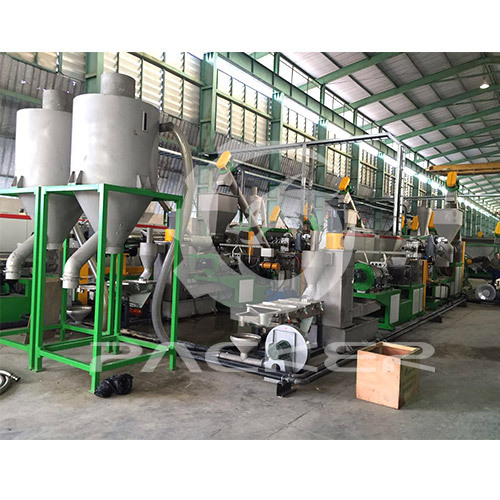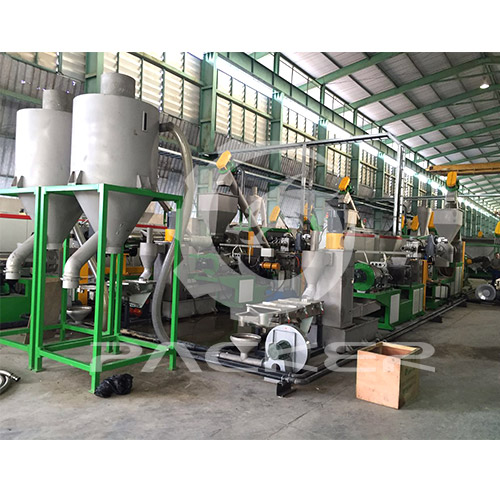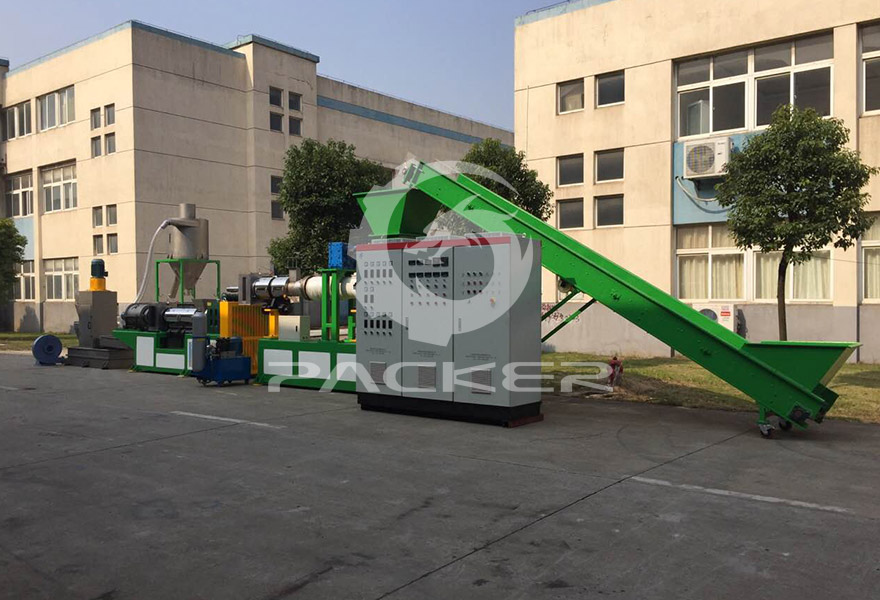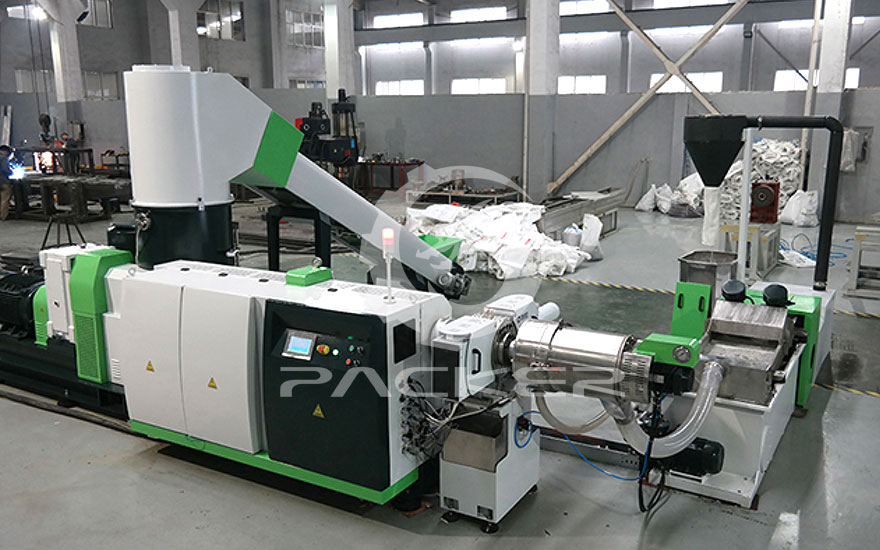 English
English Español
Español  Português
Português  русский
русский  Français
Français  日本語
日本語  Deutsch
Deutsch  tiếng Việt
tiếng Việt  Italiano
Italiano  Nederlands
Nederlands  ภาษาไทย
ภาษาไทย  Polski
Polski  한국어
한국어  Svenska
Svenska  magyar
magyar  Malay
Malay  বাংলা ভাষার
বাংলা ভাষার  Dansk
Dansk  Suomi
Suomi  हिन्दी
हिन्दी  Pilipino
Pilipino  Türkçe
Türkçe  Gaeilge
Gaeilge  العربية
العربية  Indonesia
Indonesia  Norsk
Norsk  تمل
تمل  český
český  ελληνικά
ελληνικά  український
український  Javanese
Javanese  فارسی
فارسی  தமிழ்
தமிழ்  తెలుగు
తెలుగు  नेपाली
नेपाली  Burmese
Burmese  български
български  ລາວ
ລາວ  Latine
Latine  Қазақша
Қазақша  Euskal
Euskal  Azərbaycan
Azərbaycan  Slovenský jazyk
Slovenský jazyk  Македонски
Македонски  Lietuvos
Lietuvos  Eesti Keel
Eesti Keel  Română
Română  Slovenski
Slovenski  मराठी
मराठी  Srpski језик
Srpski језик
300-400kg/h EPS Foam Pelletizing Machine
For 300-400kg/h EPS Foam Pelletizing Machine, everyone has different special concerns about it, and what we do is to maximize the product requirements of each customer, so the quality of our 300-400kg/h EPS Foam Pelletizing Machine has been well received by many customers and enjoyed a good reputation in many countries.
Send Inquiry
Product Description
A 300-400 kg/h EPS foam pelletizing machine is an even higher-capacity version of the equipment designed to process Expanded Polystyrene (EPS) foam waste into pellets or granules for recycling and reuse. This machine can handle larger quantities of EPS foam and produce pellets at a faster rate. Here's what you can expect from a typical EPS foam pelletizing machine with a capacity of 300-400 kg/h:
EPS Foam Input: The machine is designed to handle a substantial amount of EPS foam waste, including various forms such as loose foam pieces, packaging materials, and foam blocks.
Shredding: The shredding mechanism is optimized for higher throughput, efficiently breaking down the EPS foam into smaller pieces suitable for processing.
Melting and Extrusion: The melting and extrusion process remains consistent, where the shredded foam is heated and melted to form a molten material.
Pelletizing: The molten foam is extruded through a die to create pellets or granules. With the higher capacity, the production rate of these pellets is significantly increased.
Cooling System: The cooling system is designed to handle the increased throughput and efficiently cool the produced pellets.
Collection and Packaging: The machine will collect the produced EPS foam pellets, and they can be packaged for storage or transport.
Control System: The control panel allows operators to manage processing parameters to maintain the desired output and quality.
Safety Features: Safety features are essential for the proper operation of larger machines and the protection of operators.
Energy Efficiency: Larger machines might incorporate advanced energy-efficient systems to handle the increased processing load.
Size and Configuration: Due to the higher capacity, this machine will likely have a larger footprint and require adequate space in your facility.
EPS foam pelletizing machines with capacities of 300-400 kg/h are suitable for substantial recycling operations or facilities that generate a significant volume of EPS foam waste on a regular basis. Before purchasing, consider your operation's specific needs, available space, and any local regulations related to EPS foam recycling. Research reputable manufacturers and ensure the machine you choose aligns with your requirements for throughput and efficiency.



